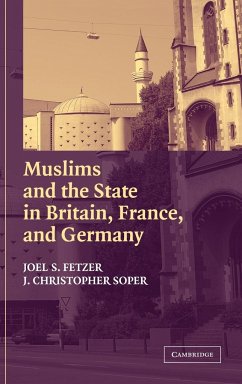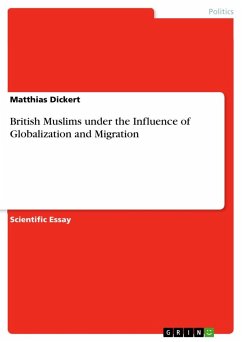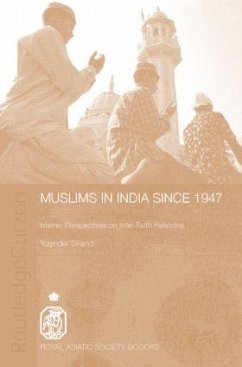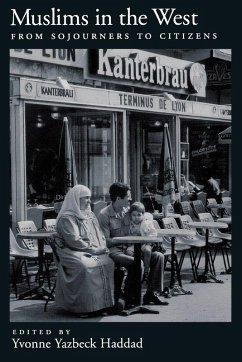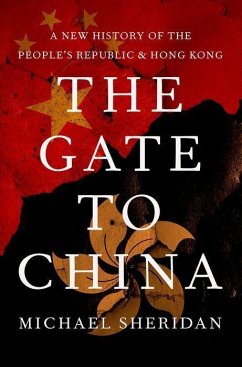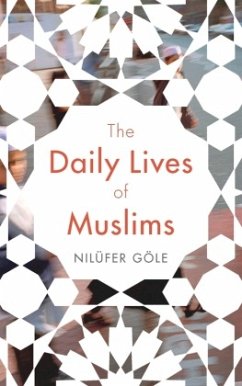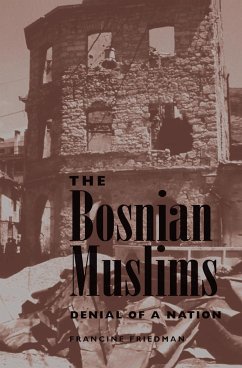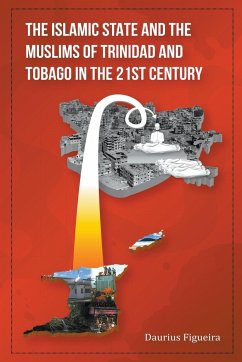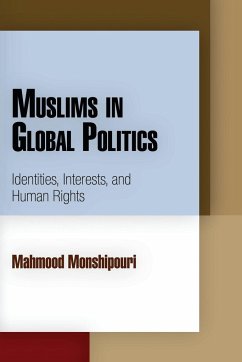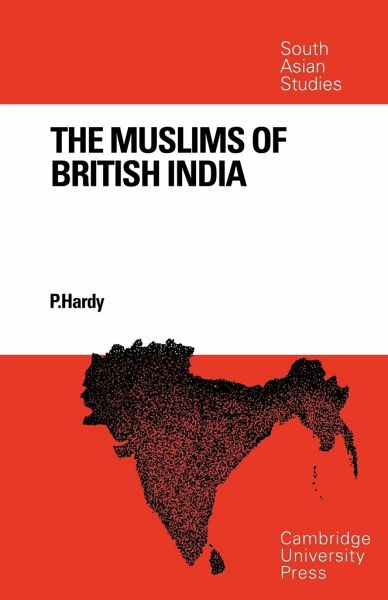
The Muslims of British India
Versandkostenfrei!
Versandfertig in 1-2 Wochen
60,99 €
inkl. MwSt.

PAYBACK Punkte
30 °P sammeln!
Dr Hardy has attempted a general history of British India's Muslims with a deeper perspective. He shows how the interplay of memories of past Muslim supremacy, Islamic religious aspirations and modern Muslim social and economic anxieties with the political needs of the alien ruling power gradually fostered a separate Muslim politics. Dr Hardy argues (contrary to the usual view) that Muslims were able to take political initiatives because, in the region of modern Uttar Pradesh, British rule before 1857 and even the events of the Mutiny and Rebellion of 1857-8 had not been economically disastrou...
Dr Hardy has attempted a general history of British India's Muslims with a deeper perspective. He shows how the interplay of memories of past Muslim supremacy, Islamic religious aspirations and modern Muslim social and economic anxieties with the political needs of the alien ruling power gradually fostered a separate Muslim politics. Dr Hardy argues (contrary to the usual view) that Muslims were able to take political initiatives because, in the region of modern Uttar Pradesh, British rule before 1857 and even the events of the Mutiny and Rebellion of 1857-8 had not been economically disastrous for most of them. He stresses the force of religion in the growth of Muslim political separatism, showing how the 'modernists' kept the conversation among Muslims within Islamic postulates and underlining the role of the traditional scholars in heightening popular religious feeling. Regarding any sense of Muslim political unity and nationhood as an outcome of the period of British rule, Dr Hardy shows the limitations and frailty of that unity and nationhood by 1947.





